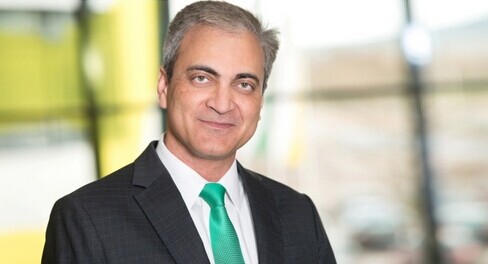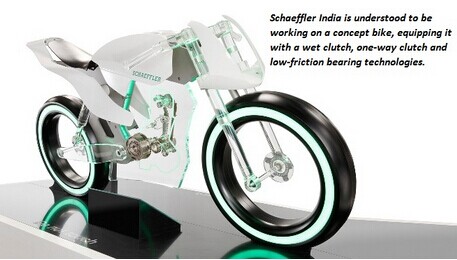- Hello Customer - Log in or Register!

Dharmesh Arora, president and CEO of Schaeffler India, on business in FY2016, new investments, the emerging trend of hybrid and electric powertrains, automatic transmissions and the potential impact of the Make-in-India initiative. An interview by Amit Panday
How did Schaeffler India's operations fare in terms of overall business in FY2015-16?
The company's turnover stood at close to Rs 3,200 crore and it registered a year-on-year growth of 5 percent. Growth was impacted by the slowdown in tractors, motorcycles and fuel mix change. There was investment at all plant locations in excess of Rs 140 crore in capacity expansion and launch of new products. There was also expansion in product lines for Gen C bearings, clutches for heavy trucks, and water pump bearing.
Can you provide some details about Schaeffler India’s medium-term growth plan (2020) and what factors will play a prominent role?
Schaeffler with its theme of 'In the region for the region' has a focused regional growth perspective. With our quest to be amongst the top strategic suppliers both for the automotive and industrial business divisions within the region, we certainly have a strategic investment plan to improve our operations, product portfolio as well as local competency footprint.
Is the company looking to introduce new product lines to tap the opportunities under new legislations including mandatory ABS, BSVI emission norms, crash tests and others?
While things like connected cars and autonomous driving will clearly emerge, the role of the conventional combustion engine will remain strong for quite some time.

From our point of view, alternative powertrain concepts like hybrid and electric cars will emerge. However, if we want to reduce CO2 emission in a sustainable manner, it is critical to further optimise the combustion engine in terms of fuel efficiency. The Schaeffler Group with its product brands LuK, INA and FAG is perfectly positioned to offer solutions for all powertrain concepts both in the automotive and industrial division.
We have, in the past, witnessed that some select OEMs had offered four-speed automatics even in segment B and C vehicles, but with very negligible success. Recently, however, there has been a gradual upshift for the demand of transmission automation, after the launch of an AMT in February 2014. Since then we have seen launches of segment A and B vehicles with an AMT solution. Other OEMs have also begun providing CVTs and DCTs in segment B and C vehicles. As a result, amazingly all possible transmission automation technologies have been launched in India. In our opinion, each automatic technology will find its space as per end consumer preference and willingness to pay for it as per vehicle segment category.
We concluded a Concept Clinic research primarily to understand the most optimum transmission automation technology for India, driven by the fact that the Indian market and consumers do pose a very challenging requirement to strike an equilibrium between three-dimensional criteria — Fuel Economy, Total Cost of Ownership and Comfort. Schaeffler has a strong footprint with all these technologies and through our strong network we can provide the most optimum solutions to OEMs in India.
Has Make in India taken off the way you had estimated a year ago? How do you evaluate the growth prospects in FY2016-17? What overall growth would you peg for the ongoing fiscal?
We see positive sentiment in India, triggered by the reforms Prime Minister Narendra Modi is putting in place. Since he came to office, the mood has changed. It is now about implementation. Sustainable changes take time. This may take years.
As a family-owned business, the Schaeffler Group has always taken a long-term view on India. On that basis, we want to take part in this important change process. I am convinced that if India succeeds in unlocking its human capital and its vast manufacturing potential through the reforms that PM Modi has put in place, it will become one of the growth engines of the world.
There is a lot of work necessary to achieve that objective. Clearly, investment in infrastructure is critical. For us as a global automotive and industrial supplier with superior technology, I see significant potential in India. With our strategic ‘Mobility for Tomorrow’ concept and the way we are set up in the country, we are well positioned to seize the upcoming opportunities.
Already today, India plays a key role in the development of two-wheelers and smaller horsepower tractors for global requirements.
As part of the Schaeffler Global Technology Network, Schaeffler’s location in Vadodara has been awarded certification as a Schaeffler Technology Center (STC). STCs are local centres of technical expertise in the regions. With highly qualified engineers and a defined range of services, Schaeffler is pursuing its requirements for offering the same high standards of customer support worldwide. Awarding the title ‘Schaeffler Technology Center’ is the confirmation — after a comprehensive audit – that these high demands are being met.
| Product Model | Inside Diameter | Outside Diameter | Thickness |
| LH-22217EK NTN | 85 | 150 | 36 |
| LH-22217E NTN | 85 | 150 | 36 |